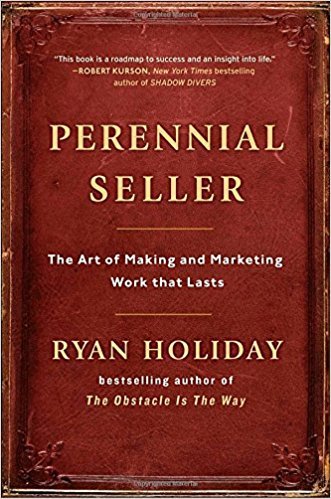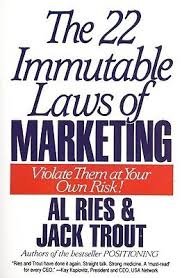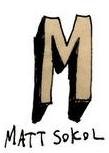Books for Better Creativity 04: The Perennial Seller by Ryan Holiday, Part 2/4: “Positioning, Polishing, Perfecting, Packaging”
When you finish the first serious draft of your art, how do you improve it? Ryan Holiday offers some thoughts here on the middle of the creative process, where you refine the final product until it is as good as it can be.

The more work you put into an artwork, the less you want to get feedback. Seeking feedback means looking for things to change about the work. The more feedback, the more potential work it will take to adjust.
Most artists find that feedback is an essential part of the creative process. You might not want feedback from everybody, but you can usually find a few friends with similar taste to you who will offer valuable feedback.
This is where the book really got good for me. I hope you’ll enjoy part two.
Disclaimer
The views represented in the book do not necessarily reflect my own.
This is a way to learn from the perspectives of others, which happens best when we challenge our own beliefs. I present this information in as politically neutral a way as I can.
In these posts, “Quotes” are direct quotes, “Notes” are notes from the book’s ideas, and “Personal Thoughts” are my own ideas.
Part 2: Positioning — from Polishing, to Perfecting, to Packaging
Quote: “There is no publisher, or angel investor, or producer, who can magically handle all the stuff you don’t want to handle. Sending in your proverbial manuscript is not the end of the work on the project, it’s not even the end of the beginning of the work.”

source: pixabay
Quote: “Audiences can’t magically just know what is inside something they haven’t seen. They can’t know it will change their lives… it is going to have to be obvious [from the packaging].”
Note: Ryan says this is separate from promotion - this is “polishing,” getting it ready, pre-promotion.
Note: Nobody else is going to do this for you. You can’t “just be the creative” - you will have to be the one to champion your work all the way to the finish line.
Quote: “Although they may get great feedback from friends, the editor is who a writer collaborates with.”
Personal Thoughts: The above thought doesn’t apply so much in my world… producers, engineers, etc, are optional in the music world. Perhaps as an author, an editor is more essential. I don’t know.
Note: Rewriting & editing are as important, and often take as long as, the original creation of the first draft. Don’t fall in love with your original product, fall in love with the future version that will be truly great.
Note: This isn’t about pleasing everybody. It’s about finding a few trusted allies, editors, producers, whatever, and listening closely to their advice. “Open yourself up to collaboration and input.”
Personal Thought (continued from above): The idea of a small group of trusted colleagues who can give you feedback does seem powerful.
Note: Untimely or painful feedback is often the last thing you want - and the most important thing you need. Push yourself to act upon this advice, especially when it is not convenient.

Feedback adds extra time to your project // source: pixabay
Quote: “Most people are so terrified of what an outside voice might say, that they forgo opportunities to improve what they are making.”
Exercise: One sentence, one paragraph, one page. Put aside your project and write a concise summary of what your [product/art/service] does - first as a sentence, then a paragraph, then a page. This is a good way to focus your thinking and get out of your own head.
Note: When you articulate what your goal is (via the above example), it’s easier to seek specific feedback from editors.
Quote: “As creators we seem to fall into two camps: either we have dreams of utter dominance and stardom or we retain a sort of hipster disdain for popularity. I think that both of these extremes are silly.”
Note: Instead of either extreme, you can focus on building “superfans” and let everything work out from there.
Note: Aim for a small and well-defined group. This is how you build true fans. “Who is buying the first 1,000 copies of this thing?”
Note: When deciding on packaging, make multiple options. Try several different covers, titles, etc - and then test them all against small groups of friends or focus groups. Agonize and obsess over the packaging. It’s the most important part of whether someone will buy the thing.
Note: Positioning is also crucial - as the famous marketing book, 22 immutable laws of marketing, states (paraphrased): “If you can’t be #1 in a market category, create your own category.”

Quote: “Creators will often spend years making something, but then rush through their descriptive copy in an hour, or they’ll rubber stamp some copy sent over by the marketing team… This is a strange statement of priorities given that a huge portion of the audience will see the poster before the movie.”
Quote: “This is a tradeoff that every single artist struggles with… artists with the ability to engage a mass audience are always engaged in a debate - is it worth it?”
Personal Thought: In my opinion, everybody will have their own answer to the above question - but many artists in the world are WAY too extreme about being anti-marketing, anti-popularity. They hold themselves back by hiding from the truth of the world, which is that marketing/positioning/etc matters if you want to reach an audience.
Final Thoughts
There are no right or wrong answers. If you are happy, nobody can say you’re wrong for choosing to make a certain style of art and to promote it as much or little as you choose.
On the other hand, if you aren’t satisfied yet, keep experimenting. Try new things and challenge preconceived notions of how art creation and promotion work. There’s always a ton of progress to be made and more of it is in your control than you may realize.
Question
Who do you go to when you need constructive feedback on your work?


another great post. thx Matt :)
since you write about creativity, do you know this old book? ;) Holton, Gerald (1978). The scientific imagination: case studies. Cambridge England New York: Cambridge University Press.
Thank you Paolo! I have never heard of that book to be honest, do you recommend it? What's it about?
it's very interesting. it's about how scientists have creative ideas about new theories. well, I read it about 30 years ago but it gives an original approach to the way creativity can work even in science.